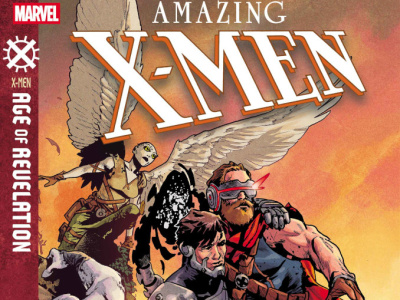Patty Jenkins’ Wonder Woman posted an extraordinarily small second weekend drop of just 45%, trouncing Universal’s first Dark Universe movie, The Mummy, in the process. The overall North American box office was about on par with last year—up a bit versus the first post-Memorial Day weekend in 2016, but down a little versus the second post-holiday frame.
Buoyed by good reviews from both critics and audiences, Wonder Woman earned $57.2 million, a drop of just 44.6%, to bring its 10-day total to $205 million. Wonder Woman’s second weekend drop is the second best ever for a superhero film that opened with at least $100 million, trailing only Sam Raimi’s first Spider-Man movie, which dropped just 37%. Wonder Woman actually posted the fifth best hold for any film opening over $100 million, trailing only Spider-Man, Star Wars: The Force Awakens, Shrek 2 and The Jungle Book. Wonder Woman’s second weekend performance looks especially good when contrasted with the dismal showings of its predecessors in the DC Extended Cinematic Universe, Batman v. Superman: Dawn of Justice (down 69%), Suicide Squad (down 67%), and Man of Steel (-65%).
It is now clear that Wonder Woman is the hit DC needed to keep its “Extended Cinematic Universe” viable. With the coming rush of summer movies, it is hard to predict how Wonder Woman will end its domestic run, but it could well be in the neighborhood of Guardians of the Galaxy, Vol.2 (now at 366.4 million), with the two films battling for superhero film box office supremacy, before it is all over.
Wonder Woman’s success came at the expense of Universal’s The Mummy, the first film in a “shared cinematic universe” built upon Universal’s catalog of classic film monsters. Poor reviews (The Mummy earned just a 17% positive rating on review aggregator Rotten Tomatoes) and poor word-of-mouth (just a “B-“ CinemaScore from opening weekend audiences) contributed to a lackluster $32.2 million North American debut. Yes The Mummy did much better overseas where Tom Cruise’s name recognition and lots of special effects can spur at least first time interest, but $141.2 million earned outside North America can’t mask the fact that Universal’s Dark Universe is off to a very rocky start. The studio kept its risks limited on The Mummy with a modest (for a summer blockbuster) $125 million budget (though promotional expenses were high), and as a result Universal will not lose money on film, but it appears now that it might have been a better idea to start the new franchise with Bill Condon’s Bride of Frankenstein, which is slated for 2019 (see "Universal Unveils Its Dark Universe").
Third place went to Dreamworks’ Captain Underpants, which like Wonder Woman, demonstrated “good legs” with just a 48.4% drop, albeit from a much smaller height. Even though stiff competition is coming from a pair of animated “threequels,” Despicable Me 3 and Cars 3, Captain Underpants, which cost considerably less to produce than the typical Dreamworks animated feature, could once again prove the immense appeal of potty humor to the younger set. So far Captain Underpants has made $44.6 million in ten days here in North America, and could possibly end up doubling that total and paving the way for the long-awaited “Diaper of Death” sequel.
Disney’s Pirates of the Caribbean: Dead Men Tell No Tales dropped 52%, but still managed to add $10.7 million to bring its North American total to $135 million, which accounts for just 25% of the film’s global haul of $528.8 million. While the latter is a big number, so is Dead Men Tell No Tales’ $230 million production cost, which means that the Mouse House may finally be seeing a small return on its mammoth investment in the next few weeks.
Fifth place went to James Gunn’s Guardians of the Galaxy Vol. 2, which has now earned $366.4 million in North America. Guardians Vol. 2 has been in the top five for the past six weekends in what is a very "leggy" performance for a superhero film. Guardians Vol. 2, the number one superhero film of 2017 so far, is shedding theaters (down almost 600 this week), but it could still end up in the $380-$390 million range given Disney's propensity to keep its hits in theaters as long as possible.
The micro-budgeted ($5 million) post-apocalyptic thriller It Comes At Night has been a big hit with the critics, who gave it an 86% positive rating on Rotten Tomatoes, but selling the suspense thriller as a "horror film" might have been a mistake, since opening weekend audiences gave the movie a really bad "D-" CinemaScore, which means that, in spite of its quality, It Comes at Night is unlikely to join 2017’s class of over-performing quasi-horror films that includes M. Night Shyamalan’s Split and Jordan Peele’s Get Out.
But sometimes even good critical notices (80% positive on RT) and an excellent “A” CinemaScore from audiences don’t guarantee success, at least not at first. Case in point is Megan Leavey, which stars Kate Mara, and earned just $3.7 million from almost 2,000 theaters for a lackluster $1,926 per venue average.
Likewise, it was dismal showing for Fox Searchlight’s period drama My Cousin Rachel, which opened in just 523 theaters, but could manage just a $1.824 average.
Be sure to check back here next week to see if Wonder Woman will continue to dominate during a weekend that will see the release of four new films including Disney and Pixar’s "toyetic" Cars 3, which will debut in 3,900 theaters, the R-rated comedy Rough Night, slated for 3000 venues, the shark-infested “survival horror” film 47 Meters Down, which was originally slated to go direct to video, but which will instead swarm onto 3,500 screens, and the Tupac film bio, All Eyez on Me, which will debut in 2.400 theaters.

Drops Only 45%
Posted by Tom Flinn on June 11, 2017 @ 12:18 pm CT
MORE COMICS
Column by Rob Salkowitz
July 14, 2025
Superman isn't a character who needs a general introduction to the broader public; he just needs an existing global fanbase to take a fresh look.
From Marvel Comics
July 14, 2025
Learn about five upcoming Age of Revelation series: Amazing X-Men, Binary, Laura Kinney: Sabretooth, Longshots and World of Revelation.
MORE COLUMNS
Column by Scott Thorne
July 14, 2025
This week, columnist Scott Thorne discusses Green Ronin Publishing's GoFundMe to fund its legal fight against Diamond Comic Distributors, and the soft preorders for the latest Horus Heresy box.
Column by Scott Thorne
July 7, 2025
This week, columnist Scott Thorne looks at the effect of Diamond Comic Distributors' bankruptcy on the games industry.








